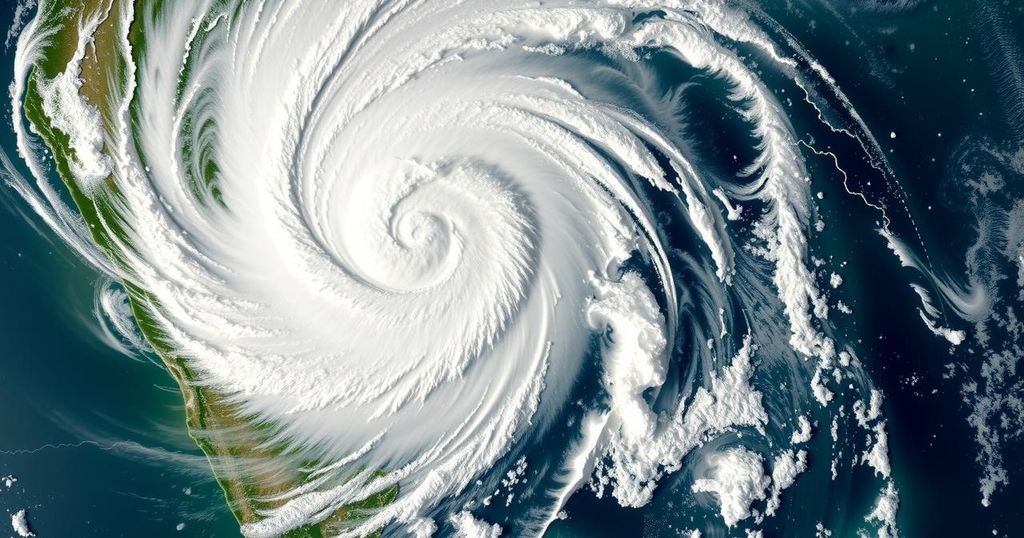Tropical Cyclone Chido: Impact and Response in Southern Africa

On December 15, 2024, Tropical Cyclone Chido made landfall in Mozambique, causing heavy rains and winds. The cyclone threatens more than 1.7 million people in Mozambique and 440,000 in Malawi. While the cyclone is projected to weaken by December 17, significant rainfall and flooding risks persist across southern Africa, prompting a coordinated response from the UN and local agencies.
On December 15, 2024, Tropical Cyclone Chido made landfall in Mozambique as a Category 4 cyclone, impacting primarily the region around Pemba in Cabo Delgado Province. The cyclone generated destructive winds reaching 260 km/h and heavy rainfall up to 250 mm within 24 hours, which posed severe risks of coastal flooding and destruction across affected areas. Preliminary reports indicated damage to homes and communication disruptions, particularly in Pemba. The storm is projected to further impact southern Malawi with heavy rain and winds before dissipating near Zimbabwe by December 17. Moreover, more than 1.7 million individuals in Mozambique and 440,000 in Malawi are within the cyclone’s affected trajectory, prompting coordinated humanitarian responses from the UN and local authorities.
The remnants of Cyclone Chido will bring heavy rain and strong winds to southern Malawi from December 15 to 16, while the anticipated conditions may also affect other nations in southern Africa, including parts of Zambia, Zimbabwe, and Angola. The UN Office for the Coordination of Humanitarian Affairs continues to monitor the situation, providing support to these regions while local weather services alert residents to the dangers posed by adverse weather conditions. Reports from the Comoros indicated minor damages, with injuries and displacement occurring on affected islands. The international airport reopened on December 15, while internal flights remain suspended pending safety checks.
Historical context reveals that Tropical Cyclone Chido initially developed between December 7 and 8 in the southeastern Indian Ocean, strengthening to a Category 4 cyclone on December 10 before weakening before landfall. Given the widespread expectations of heavy rainfall and potential for flash floods and mudslides, national meteorological services are on high alert to protect vulnerable populations and infrastructure. The cyclone serves as a stark reminder of the region’s vulnerability to severe weather events attributable to climate change, which increases the frequency and intensity of such storms.
Tropical Cyclone Chido is indicative of the increasing frequency of severe weather events in the southern African region, attributed in part to climate change. Cyclones in these areas often bring not only drastic winds and heavy rain but also pose significant risks to human life, property, and agriculture. The UN and various humanitarian agencies play a crucial role in preparedness and response, aiding affected populations during and after such events. The current trajectory of Chido highlights the need for ongoing monitoring and swift response mechanisms to mitigate the impacts of natural disasters in vulnerable regions of Mozambique and Malawi, reflecting a broader trend of climate-related emergencies in the southern spheres of Africa.
In summary, Tropical Cyclone Chido has inflicted severe weather conditions in Mozambique, with ongoing risks to Malawi and neighboring countries. The response by humanitarian agencies and national governments is essential in addressing the immediate needs of the affected populations while preparing for possible further impacts as the storm dissipates. As climate change continues to challenge weather patterns, the need for effective disaster preparedness and resilient infrastructure must remain a priority in southern Africa.
Original Source: reliefweb.int






